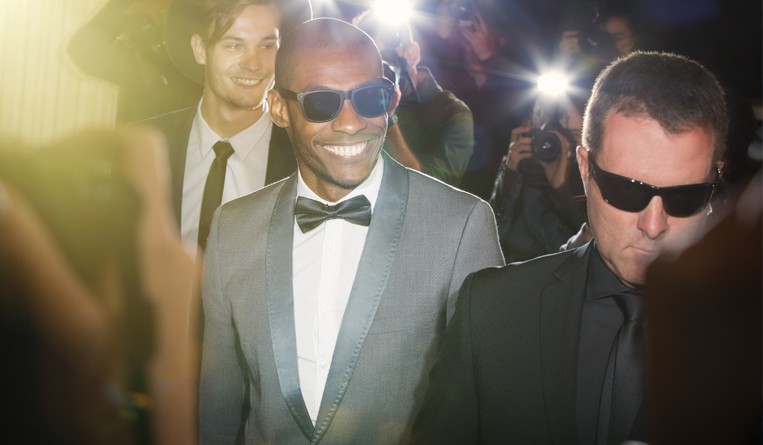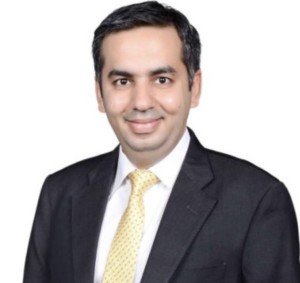Protecting Personality rights and dealing with Deep Fakes
24 October 2024

AI is revolutionizing the way brands collaborate with celebrities, making it imperative for regulatory authorities to formulate policies that strike a balance between fostering innovation and ensuring accountability. – Ranjan Narula and Abhishek Nangia
AI is revolutionizing the way brands collaborate with celebrities, making it imperative for regulatory authorities to formulate policies that strike a balance between fostering innovation and ensuring accountability. Ranjan Narula and Abhishek Nangia explain the situation in India and elsewhere in Asia.
In recent years, artificial intelligence has made significant advancements, with deep learning models being deployed across various scenarios, including creative industries. As AI applications are being embedded in our day-to-day life, the repercussions of AI deployment are becoming highly relevant and important. The ethical concerns associated with AI are multifaceted, including challenging issues of fairness, privacy and data protection, responsibility and accountability, safety and robustness, transparency and environmental impact.
This article examines the impact of AI applications on the personality rights of celebrities, and judicial approach in India on unauthorized use of celebrity’s name, image and personality rights involving AI. The article also covers the existing legal framework to deal with deep fakes in Asian countries.
Legal framework of protecting personality rights
Publicity and image rights are typically recognized as property rights rather than personal rights, making them assignable and licensable for commercial benefits. In practice, the law relating to publicity and image rights is still evolving in India with no codified law governing this area. Image rights stem from the right to privacy and the principle of human dignity outlined in Articles 19 and 21 of the Constitution.
Trademarks Act
There is no specific provision for protecting publicity and image rights. Celebrities can protect their names and images by registering them as trademarks. The definition of “mark” under Section 2(m) of the Trademarks Act, 1999 includes “names”, making it possible for individuals to register their names as trademarks.
Further they can rely on the common law remedy of passing off to protect their publicity and image rights. This requires proof of the individual's reputation, the misrepresentation caused, and irreparable damage to the individual.
Copyright Act
The Copyright Act, 1957 does not define the word “celebrity”. However, the definition of a “performer” under Section 2(qq) includes an actor, singer, musician, dancer, acrobat, juggler, snake charmer, lecturer or any other person who delivers a performance. Celebrities frequently invoke Sections 38, 38A, and 38B of the Copyright Act, 1957, which grant performers the right to receive credit and claim authorship of their performances. These provisions also provide performers with a negative right, allowing them to prevent others from damaging their performances, which in turn protects their reputation.
Remedies under Information Technology Act, 2000 for AI-generated content
The Information Technology Act, 2000 offers legal remedies for the misuse of AI-generated voices under Section 66D and publishing/circulating obscene material created through AI under Section 67.
-
Section 66D. The provision envisages cheating by personation using communication devices and encompasses offenses where an individual’s voice or image is misappropriated through AI. Punishment: up to three years imprisonment and a fine of up to Rs.100,000 (US$1,185).
-
Section 66E. This section provides for punishment of violation of privacy of a person by any means including video, photograph, film and publishing it in printed or electronic form.
-
Section 67. This section encompasses offenses where pornographic content involving the celebrity created through AI is published/circulated. On first conviction, offenders can face up to three years imprisonment and a fine of up to Rs.500,000 (US$5980) for publishing or transmitting obscene material in electronic form. Each subsequent conviction can lead to imprisonment up to five years and a fine of up to Rs.1 million (US$ 11965).
AI impact on unauthorized use of celebrity’s name, image and personality rights
The recent trend is to create sophisticated AI applications that can use names, voice, signatures, photographs, images, caricatures, likeness, personas and other attributes of a celebrity to make money. To control the indiscriminate use of their name and personality rights, several celebrities have approached the courts to stop unauthorized commercial use.
Jaikishan Kakubhai Saraf alias Jackie Shroff v. The Peppy Store and Others
Jackie Shroff, a well-known Bollywood actor, filed a suit against 18 defendants (including an AI chatbot that used attributes of his persona without his consent) for infringement of the registered marks, protection of his own name, image, likeness, persona, voice and various other distinctive attributes of his personality against misuse over the internet.
The court granted an ex parte interim injunction in favour of Jackie Shroff and restrained the defendants from infringing the plaintiff’s personality/publicity rights by misappropriating the plaintiff’s name (“JACKIE SHROFF”, “JACKIE”, “JAGGU DADA”), voice or image for any commercial purpose without his consent. It also restrained the defendants from selling wall art featuring animated images of the plaintiff, merchandise using the plaintiff’s photograph and name and circulating videos tarnishing the reputation of the plaintiff.
Interestingly, the court refused to direct a takedown of a video titled Jackie Shroff is Savage, Jackie Shroff Thug Life posted by a YouTuber. The court held that it is an artistic expression and blocking it could set a precedent that stifles freedom of expression.
Arijit Singh v. Codible Ventures LLP & Others
The plaintiff, Arijit Singh, a famous playback singer in the Indian music industry, filed a suit against 38 defendants (including AI platforms, owners of restaurants and pubs, organizers of virtual reality events, merchandisers, ecommerce portals and domain name registrars) seeking protection of his personality rights and publicity rights over his own name, voice, signatures, photograph, image, caricature, likeness, persona and various other attributes of his personality against unauthorized commercial exploitation and misuse by the defendants, in this case being AI platforms:
-
Using algorithms to create audio-visual content by using the plaintiff’s personality traits (voice, mannerisms, photographs, etc.) to generate commercial gains;
-
Real voice cloning (RVC) applications to convert any speech or voice recording or audio file into the plaintiff’s voice;
-
A website called www.jammbale.com which allowed the creation of songs with unauthorized use of the plaintiff’s voice using AI models.
Videos were uploaded on social media channels promoting a step-wise guideline for unauthorized conversion of any text or speech or voice recording or audio file into the plaintiff’s voice by using the AI platforms. In addition, certain defendants were engaged in commercially exploiting the plaintiff’s publicity rights by selling merchandise bearing the plaintiff’s names, images, photographs, likeliness, etc., on ecommerce platforms.
The court granted an ex parte injunction order in favour of the plaintiff and observed that making AI tools available that enable the conversion of any voice into that of a celebrity without permission constitutes a violation of the celebrity’s personality rights. The court ruled that defendants are restrained from violating Arijit Singh’s personality rights and/or publicity rights by multiple third parties and AI platforms.
Anil Kapoor v. Simply Life India
The plaintiff, Anil Kapoor, a well-known Bollywood actor, filed a court action alleging that the defendants, Simply Life India and others, including unknown persons pleaded as John Doe, were misusing various features of his persona through technology, including artificial intelligence, deepfakes and GIFs and making illicit commercial gains. Specifically, the defendants were using AI to produce images and videos that were derogatory to Anil Kapoor and other actors and generated his images as cartoon characters using AI.
On September 20, 2023, the court ruled in favour of the plaintiff and observed that modern technological tools, including AI, make it possible for illegal and unauthorized users to produce or imitate a celebrity’s persona, and that celebrities enjoy the right of privacy and do not wish to have their image, voice or likeness portrayed in a dark or grim manner (e.g., on porn websites). The court ruled that the defendants are restrained from using Anil Kapoor's name, likeness, image, voice, personality or any other aspects of his persona to create any merchandise and ringtones, or in any manner misusing the said attributes by using technological tools (e.g., AI, machine learning, deepfakes, face morphing or GIFs), for monetary gains or for commercial purposes.
Deepfakes
Deepfakes are commonly understood as images, videos, or audio that are edited or created by manipulating text, pictures, audio and video using AI tools. Various countries are grappling with a steep rise in deepfake scams and the need for enactment of specific law is being debated to control content over the internet. Typically, deep fakes use celebrity images, videos to perpetrate fraud or promote products and services as being endorsed by a celebrity. Also, incidents of deepfake videos are commonly observed during elections to influence the voters.
Deepfake-related crimes are on the rise in the Asia-Pacific region reporting a significant 1,530 percent increase between 2022 and 2023, as per UK-based Sumsub, Identity Fraud Report 2023. The top 5 countries in the Asia-Pacific region recording growth in deepfake cases between 2022 and 2023 are the Philippines (4,500 percent), Vietnam (3,050 percent), Japan (2,800 percent), Sri Lanka (2,400 percent) and Australia (2.200 percent). Vietnam and Japan contributed to nearly half of deepfakes fraud.
Indian government issues advisory to intermediaries for deepfake content
Considering the growing concerns around misinformation powered by AI deepfakes, the Indian government issued an advisory in December 2023 to all intermediaries to act against deepfakes and misinformation. The advisory mandates that social media intermediaries must:
-
Comply with the Information Technology (Intermediary Guidelines and Digital Media Ethics Code) Rules, 2021 (IT Rules 2021), and
-
Make reasonable efforts to prevent users from hosting, displaying, uploading, modifying, publishing, transmitting, storing, updating, or sharing information related to the 11 types of prohibited content listed under Rule 3(1)(b). This rule aims to ensure platforms identify and promptly remove misinformation, false content impersonating others including deepfakes. Failure to comply with the IT Rules would take away the safe harbour protection extended to intermediaries under Section 79 of the IT Act.
The below table analyzes the current position to deal with deep fakes in various Asian countries:
|
Country |
Law to deal with deepfakes |
Comments |
|
China |
Yes Regulations on the Management of Deep Integration of Internet Information Services (2023) |
The law contains provisions to combat the publication or dissemination of deepfakes and seeks to combat misinformation by requiring creators to specifically label that it is computer generated. Violation can attract both civil and criminal prosecution. Prior to this, “Regulations on the Administration of Online Audio and Video Information Services” were introduced in the year 2019 which broadly prohibited the use of machine-generated images, audio and video to create or spread “rumours”. |
|
South Korea |
No |
Regulated through the Sexual Violence Prevention and Victims Protection Act. Making sexually explicit deepfakes to distribute it is punishable with imprisonment up to five years or a fine of W50 million (US$37,000). The legislation recently introduced aims to expand on the existing law by targeting the consumers of deepfake porn. Anyone caught watching, saving, or purchasing such material could face up to three years of imprisonment or a fine of W30 million (US$22,600). |
|
Japan |
No |
Information Distribution Providers Act, 2024 passed to expedite content takedown requests. |
|
Thailand |
No |
Deepfakes are regulated through other laws such as Computer Crimes Act B.E. 2550 (2007), Criminal Code and laws related to defamation, privacy violations, intellectual property rights. |
|
Indonesia |
No |
Deepfakes are regulated through existing laws including Criminal Code, Electronic Information and Transaction Law, 2008, Law No. 27 of 2022 on Personal Data Protection. |
|
Vietnam |
No |
Deepfakes are regulated via protection for individual rights and prohibiting the spread of false information. |
|
Singapore |
No |
Deepfakes may be regulated through the Protection from Online Falsehoods and Manipulation Act, 2019. The law does not explicitly mention deepfakes, however, its broad scope could potentially cover deepfakes. Recently, a bill was introduced in the Parliament to combat deepfake content of candidates during elections. |
|
Philippines |
No |
House Bill 10567 for the Deepfake Accountability and Transparency Act has been introduced. The bill makes it mandatory for deepfake content to have disclosures and provides for stringent penalties. |
To sum up
In conclusion, AI is revolutionizing the way brands collaborate with celebrities, presenting both opportunities and challenges. Therefore, it is imperative for regulatory authorities to formulate policies that strike a balance between fostering innovation and ensuring accountability. The accountability needs to be fixed not only for the companies creating AI applications that utilize a celebrity’s name, voice, signature, photographs, likeness, and other attributes for commercial purposes but also the social media platforms that distribute the AI-generated content. The legal landscape is evolving with courts recognizing the personality rights of celebrities and have issued ex parte injunction orders against the AI applications where they find such use is unlicensed. At the same time, the challenges posed by the AI generated content and deep fakes require technology and law to work in tandem.









